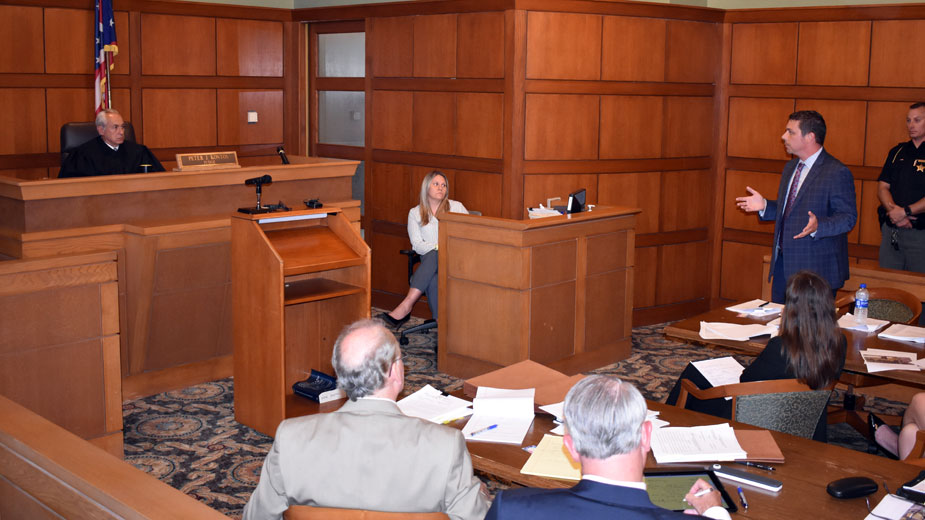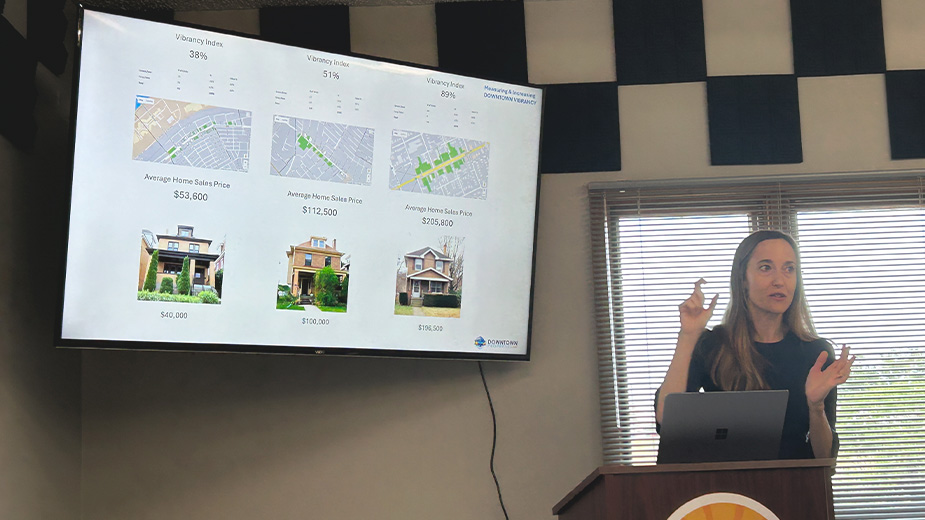Judge Holds Off on TRO to Negate Lordstown Vote
WARREN, Ohio – Trumbull County Common Pleas Judge Peter Kontos is expected to rule sometime next week whether to grant a temporary restraining order sought by opponents of zoning changes on nearly 300 acres of land in Lordstown that were upheld by village voters this week.
Kontos called on plaintiffs and defendants in the complaint, which was filed Wednesday, to submit entries through next Tuesday in response to arguments heard Friday afternoon in his court and other filings in the case.
The day after special election, in which voters overwhelmingly upheld the rezoning of seven parcels where TJX Companies Inc. wants to build a $160 million regional distribution center, the Committee of Concerned Lordstown Residents and Brett Dickson, its treasurer, filed a complaint requesting declaratory judgment, the TRO and injunctive relief. The complaint claimed that legislation authorizing the special election violates the Ohio Constitution.
A hearing is scheduled for Sept. 11 on the merits of the case.
The complaint, filed against the village of Lordstown and the state of Ohio, challenges the constitutionality of two provisions in a state law approved in June that permitted the village to hold a special election this month and to allow a village council member who abstained in a vote on zoning changes to not have his seat counted for the purpose of determining the required number of affirmative votes.
Village Council approved the rezoning on a series of 3-2 votes, with Councilman Ron Radtka, whose family owns some of the property where TJX plans to build, abstaining.
The legislation also permitted the election to take place in August rather than delay any referendum on the zone changes until the November general election.
The plaintiffs in the case argued, in their initial filing and through Akron attorney David Nichol in court Friday, that the enabling provisions, Sections 12 and 16 of House Bill 292 violate both the single-subject rule and the uniformity clause in the Ohio Constitution.
“None of my clients want to hurt jobs,” he said. “They just said that a Fortune 500 company should not be able to come into town and basically throw people’s constitutional rights out the window.’
Section 12 in H.B. 292 specifies that it applied to “accommodate a new use of real property that is likely to bring at least 500 new jobs and $50 million in investment to the village.” TJX has said the warehouse for its HomeGoods brand will employ 1,000 workers once it is fully operational.
The additions to H.B. 292 at issue were “clearly designed just for the TJX project,” Nichol said. There is no way that any evidence can be presented that any other village in Ohio is currently or ever will be able to implement Sections 12 or 16, he added.
Matthew Ries, an attorney with Harrington, Hoppe & Mitchell’s Warren office representing Lordstown, told the court H.B. 292 went into effect in June. Opponents of the zone change should have filed their action 45 days ago, not the day after the special election.
“Ohio law is pretty clear. If you wait until after an election to bring up an issue that could have been raised before, the issue becomes moot,” Ries said.
He argued that other communities that met the requirements set forth in the legislation could utilize those provisions, meeting the uniformity requirement.
“The people have spoken on this issue. Now what they’re essentially attempting to do is appeal the election results using these proceedings, using the TRO proceedings, and they’re doing it by challenging the constitutionality of this House bill,” Ries said.
Nicole Koppitch, an Ohio assistant attorney general representing the state, said that to meet the one-subject requirement, “the topics of a bill don’t have to be identical … as long as there’s a common thread.”
Koppitch agreed that the plaintiffs should have raised the constitutional challenge before the special election and contended the plaintiffs’ uniformity challenge will fail.
Following the hearing, state Sen. Sean O’Brien, who helped insert the language applying to TJX in the bill, said the legislation was “fully vetted” to ensure it met the standards of the uniformity clause and the one-subject rule. “We made sure that was addressed,” he said.
Mayor Arno Hill said he is pleased that the TRO wasn’t approved at the hearing.
As yet, TJX hasn’t closed on the properties it has optioned for the project, he said. Its site plan also needs to be submitted to the village planning commission.
Attorney Molly Johnson, who represents landowner Harvey Lutz, she does not know when TJX intends to close on the property. Lutz has optioned 121 acres to the company.
“Ultimately, it’s in TJX’s hands right now as to when they are comfortable enough to close and move forward,” she said.
Pictured: Matthew Ries, representing the village of Lordstown, argues before Trumbull County Common Please Judge Peter Kontos.
Copyright 2024 The Business Journal, Youngstown, Ohio.



